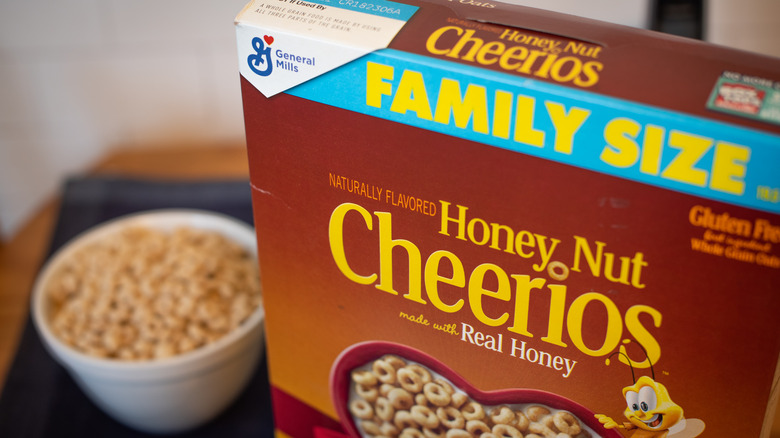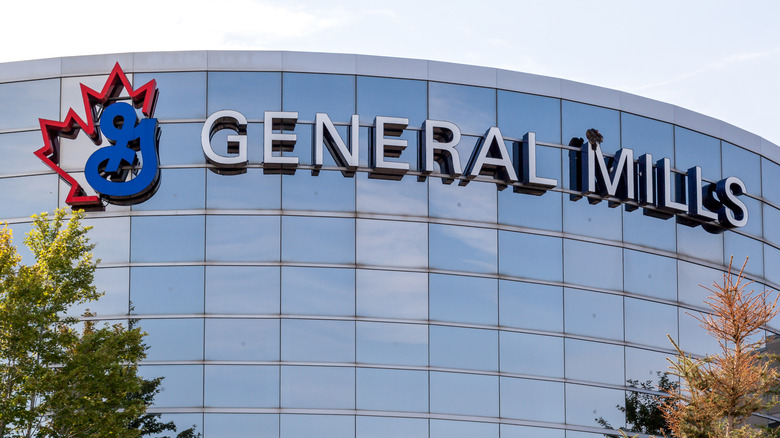The Surprising Reason General Mills Is Seeing A Big Dip In Sales
While the effect that the pandemic had on the fortunes of the fast food industry has been well covered, the boom that breakfast cereals have enjoyed has received relatively little notice. However, with society beginning the process of reopening, executives at General Mills are preparing themselves for a dip in sales.
"We expect that consumer demand for food at home in fiscal '22 will decline from elevated fiscal '21 levels as more vaccines are distributed, offices and schools reopen, and the broader economic recovery continues," Jeffrey L. Harmening, chairman and chief executive officer, said in prepared remarks quoted by Food Business News. Still, the company remained confident that the demand for "at-home" food wouldn't dip back to pre-pandemic levels. In the conference call, for which The Motley Fool provides a transcript, Harmening explains the reasoning being that many jobs will remain at home, people have developed new kitchen skills during the pandemic, and that their e-commerce business has been growing during the pandemic, meaning people have grown used to the convenience that General Mills supplies.
General Mills also explained it will have to raise the cost of its cereals, which may have some effect on sales. The issue, as The Wall Street Journal reports, is that expenses have risen across the board, from ingredients made more expensive by the pandemic's disruptions, to transportation and labor. Throughout all of this, though, General Mills insists that the future still looks more profitable than its pre-pandemic years.
But are shoppers still buying cereal?
While General Mills can take comfort that its recent bump may last, this self-diagnosis left out the fact that people have trended away from eating cereal for breakfast. This is a problem for General Mills because even though its range of products extends beyond cereal, breakfast cereals like Honey Nut Cheerios dominate its profits. The decline in cereal has been long documented, with The Consumerist publishing a piece about it as early as 2014 and CNN bringing the "issue" up again in 2017.
Kare 11 reports that while General Mills saw its best sales year ever in 2020, it only did so because world events paused the pressures against which the company fought for years. "Year after year the amount of cereal we eat has gone down, and that's basically the core of the company, so they are facing some headwinds, and these headwinds have been there for a while," George John, Professor of the University of Minnesota, explained.
This is true even if General Mills is stepping up its e-commerce game because the business model of General Mills is a producer of goods, not a logistics company that sells the goods made by others, like Amazon. So, what matters is if the company sells cereal, not how it sells it. Currently, to capitalize on its recent bump, it'll probably give up on cereal as the cornerstone of its business.

